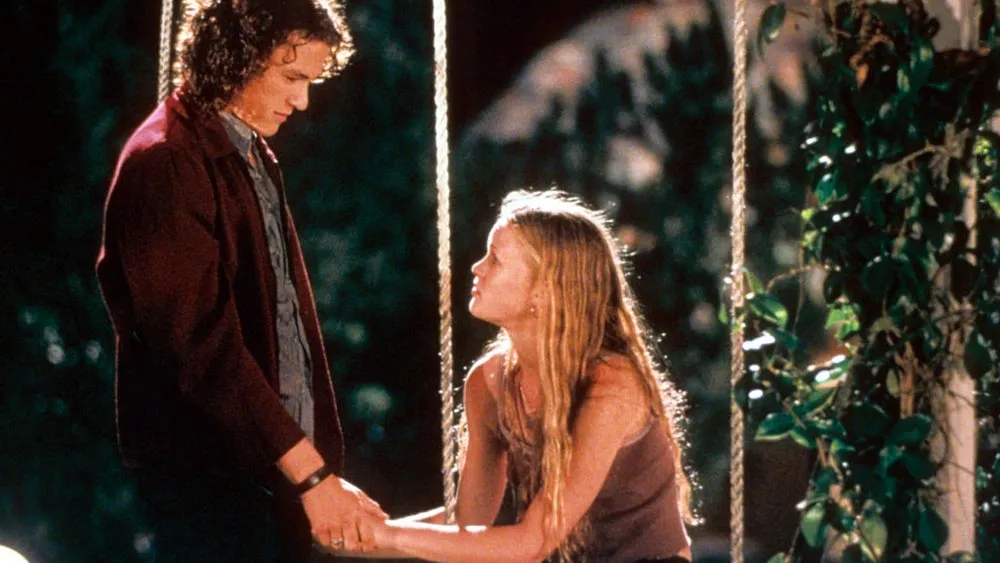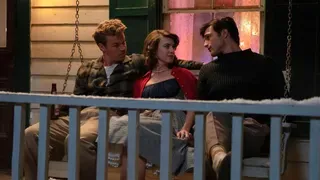December 4, 2017
The Trial at Rouen. Odyssey Opera
Ed Tapper READ TIME: 3 MIN.
For its current season, dedicated to works concerning the life and times of Joan of Arc, Odyssey Opera selected a rare operatic gem by the Italian-American Norman Dello Joio. The composer had something of a preoccupation with the 15th century, French martyr, and created a number of operatic and orchestral works based on her legend. Perhaps his most significant work on the subject was "The Trial at Rouen."
The much-anticipated opera was given an illustrious premiere in 1956, on an NBC television broadcast. Shortly thereafter, it fell into relative obscurity, and had never been performed live in an actual theater. As Dello Joio was for many years Dean of the Boston University College of Fine Arts, it seemed appropriate that the "The Trial at Rouen" be given its theatrical premiere here. And Odyssey Opera was just the group for the job.
The composer crafted his own libretto for the 75-minute, two-act opera. The music is tonal, and basically lyrical in nature, requiring a large orchestra, chorus, and three principal soloists. The second act, which includes the actual trial sequence is well constructed, and the stronger of the two. It begins with an atmospheric prelude, and a rousing peasant chorus, which segue right into the trial.
Odyssey's performance included two numbers added by the composer after the opera's premiere. The second was an extended final aria for Joan. Although it does contain some lovely music, it unnecessarily elongates the finale, while diluting the dramatic impact of Joan's tragic sentence of execution.
As Gil Rose is the conductor of both Odyssey Opera and the Boston Modern Orchestra Project, he combined his forces for this event, preceding the opera with the 1952 "The Triumph of Saint Joan Symphony." The three movements contain some striking passages, and stylistic echoes of Aaron Copland, as well as Dello Joio's teacher, Paul Hindemith. He conducted with characteristic precision and command, as he did in the opera that followed.
"The Trial at Rouen" was given an effective semi-staging at Jordan Hall-a notable achievement considering the miniscule spaces unoccupied by the large orchestra. As is the tradition with Odyssey Opera, the staging was tasteful, and the production elements were faithful to the period in which the story was set. The three lead singers were quite strong in their roles.
Baritone Stephen Powell was the vocal standout of the evening. His huge, resonant voice carried easily over the orchestra in the loud passages; and its dark timbre was ideal for the role of the Pierre Cauchon, the menacing Bishop eager to have Joan condemned for heresy. Providing a nice vocal contrast, Luke Scott's sweeter, lyric baritone was perfectly matched to the role of the benevolent Father Julien.
In the taxing role of Joan, Heather Buck sang with accuracy, security, and passion. Bearing a slight resemblance to Jean Seberg in Otto Preminger's "Saint Joan," the beautiful soprano looked appropriate waif-like in the "trouser" role. A skillful actress, she was totally convincing as the tragic heroine.
The Joan of Arc season rekindles in February, with Arthur Honegger's oratorio "Jeanne d'Arc au bucher," and concludes in April with an early Verdi rarity, "Giovanna d'Arco."
"The Trial at Rouen" was presented by Odyssey Opera on December 1, 2017, at Jordan Hall, Boston. For more on Odyssey Opera's upcoming productions, visit the company's website.







